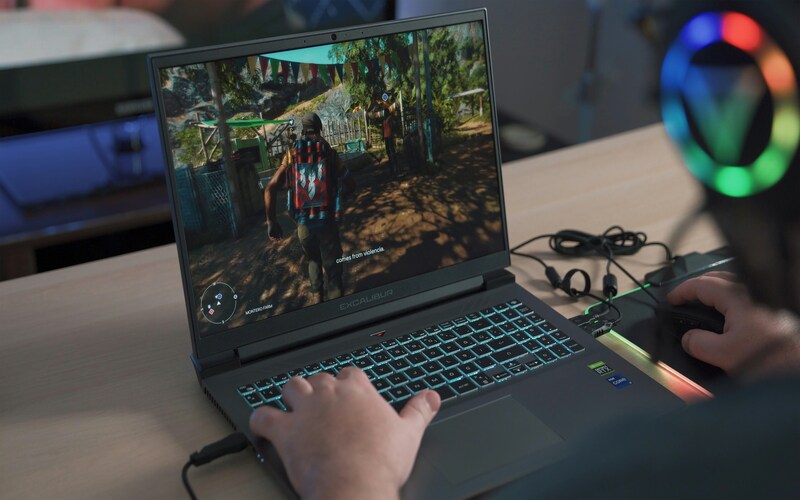
7 Indonesian Game Translation Mistakes That You Should Avoid
Game translation is a complex task that requires linguistic skills and a deep understanding of the culture and context of the game. As the games industry in Indonesia grows, the demand for high-quality game translations continues to increase. However, there are some common mistakes that can damage the quality of the translation and negatively impact the gaming experience. Here are seven Indonesian game translation mistakes you should avoid to ensure a smooth and engaging gaming experience for players:

1. Embed Text Into the Core File
The most common mistake in translating games into Indonesian, especially for those who are not used to localizing games, is “embedding the text in the code file." This sounds simple. But why should it be avoided completely? First, when a string is inserted directly into the source code, the translation stops. The game translator must go through the entire core file to identify which parts of the text need to be translated.
Additionally, externalizing text from code can compromise your software and make maintenance more challenging. You can imagine what happens when the same string appears multiple times throughout the code, necessitating replacing all occurrences each time the string is changed. Lastly, because the Indonesian script is different from the Latin alphabet, this can cause problems for your translation program.
Read More: 8 Common Errors in Indonesian Game Translation You Should Avoid
So keep in mind not to put your text in code. Instead, externalize it from a source code file. Externalization is supported by almost all programming languages. For example, a common practice in Python is to localize strings with “.po” files, or for Java, “.properties” resource files can be used.
2. Ignoring Cultural References
Games often contain cultural references that Indonesian players may not be familiar with. Ignoring these references or failing to adapt them can cause confusion and disconnection from the game. For example, if a game includes references to Western holidays such as Thanksgiving or Halloween, it may be more relevant to replace them with Indonesian holidays such as Lebaran or Nyepi. Adapting cultural references helps make the game feel more relevant and interesting to local audiences.
3. Inconsistent Terminology
Consistency in terminology is essential in game translation to avoid player confusion. This includes maintaining uniformity in the translation of game mechanics, character names, items, and other repetitive terms. Inconsistent use of terms can disrupt a player's understanding and immersion in the game. For example, if the term "health potion" is translated differently in different parts of the game, this can confuse players. Ensuring a consistent glossary throughout the game translation process is important.
4. Poor User Interface (UI) Localization
The user interface (UI) is a critical component of any game, and poor localization can have a significant impact on the player's experience. Text that is too long or poorly formatted can cause UI elements to overlap or become unreadable. In Indonesian game translation, it is important to consider the length and readability of the translated text to fit UI constraints. This may involve shortening the text or using more concise language to ensure the UI remains user-friendly and visually appealing.
5. Ignoring Contextual Nuances
Context is key in translation, and this is especially true in game translations, where text can have different meanings depending on the situation. For example, the word "save" can mean saving the game, saving a character, or saving resources. Translators need to understand the specific context to choose the appropriate equivalent in Indonesian. Failing to consider contextual nuances can result in incorrect translations that confuse or mislead players.
6. Ignoring Translation Testing
Once the translation is complete, it's important to test it in-game to make sure it works as intended. This step is often overlooked but is important for catching errors or odd phrases that may not be visible in a text document. Test-playing games with translated text help identify issues such as overlapping text, incorrect use of context, and untranslated strings. This also provides an opportunity to improve the translation for a better player experience.
7. Ignoring Player Feedback
Player feedback is an invaluable resource for improving game translation. Ignoring this feedback can lead to ongoing problems and a bad reputation among the gaming community. Developers and translators should actively seek and integrate feedback from Indonesian players to improve translation quality. This can involve surveys, monitoring forums, and interacting with communities on social media to understand their experiences and preferences.
High-quality game translation is essential to providing an immersive and enjoyable experience for players. Avoiding common mistakes in Indonesian game translations can help ensure the final product resonates with local audiences and maintains the integrity of the original game. By focusing on cultural adaptation, consistency, contextual accuracy, and player feedback, translators can create seamless and engaging experiences that increase the game's appeal in the Indonesian market.
As the Indonesian game industry grows, the importance of skilled and thoughtful translation cannot be ignored. Developers and translators must work closely together to navigate the complexities of language and culture, ensuring games can be accessed and enjoyed by players in Indonesia. By avoiding these common mistakes, the industry can set higher standards for game translation and contribute to the global success of Indonesian games.
High-quality game translation is essential to providing an immersive and enjoyable experience for players. Avoiding common mistakes in Indonesian game translations can help ensure the final product resonates with local audiences and maintains the integrity of the original game. By focusing on cultural adaptation, consistency, contextual accuracy, and player feedback, translators can create seamless and engaging experiences that increase the game's appeal in the Indonesian market.
Apart from that, good game translation also plays a role in expanding the reach of the game market itself. With accurate and relevant translations, games can not only be well received by local players but also open up opportunities to attract new players who may have previously been reluctant to play due to language barriers. Proper translation can also increase player loyalty, as they feel valued and important to the game developer. It is also important for developers to invest sufficient time and resources in the translation process. Engaging professional translators who understand both cultures and languages well and are experienced in game translation can make a big difference in the final result. Continuous testing and evaluation, as well as listening to feedback from the player community, are important steps in improving game translation.
In this way, the Indonesian gaming industry can continue to develop and compete internationally, bringing unique stories and gaming experiences to players around the world. Through good translation, games can become a cultural bridge that enriches the gaming experience for everyone. If you need services for game localization or translation, Digital Trans Asia is the most appropriate solution for you. We have a team of experts in their field. So don't hesitate to consult with us. We are ready to help you.